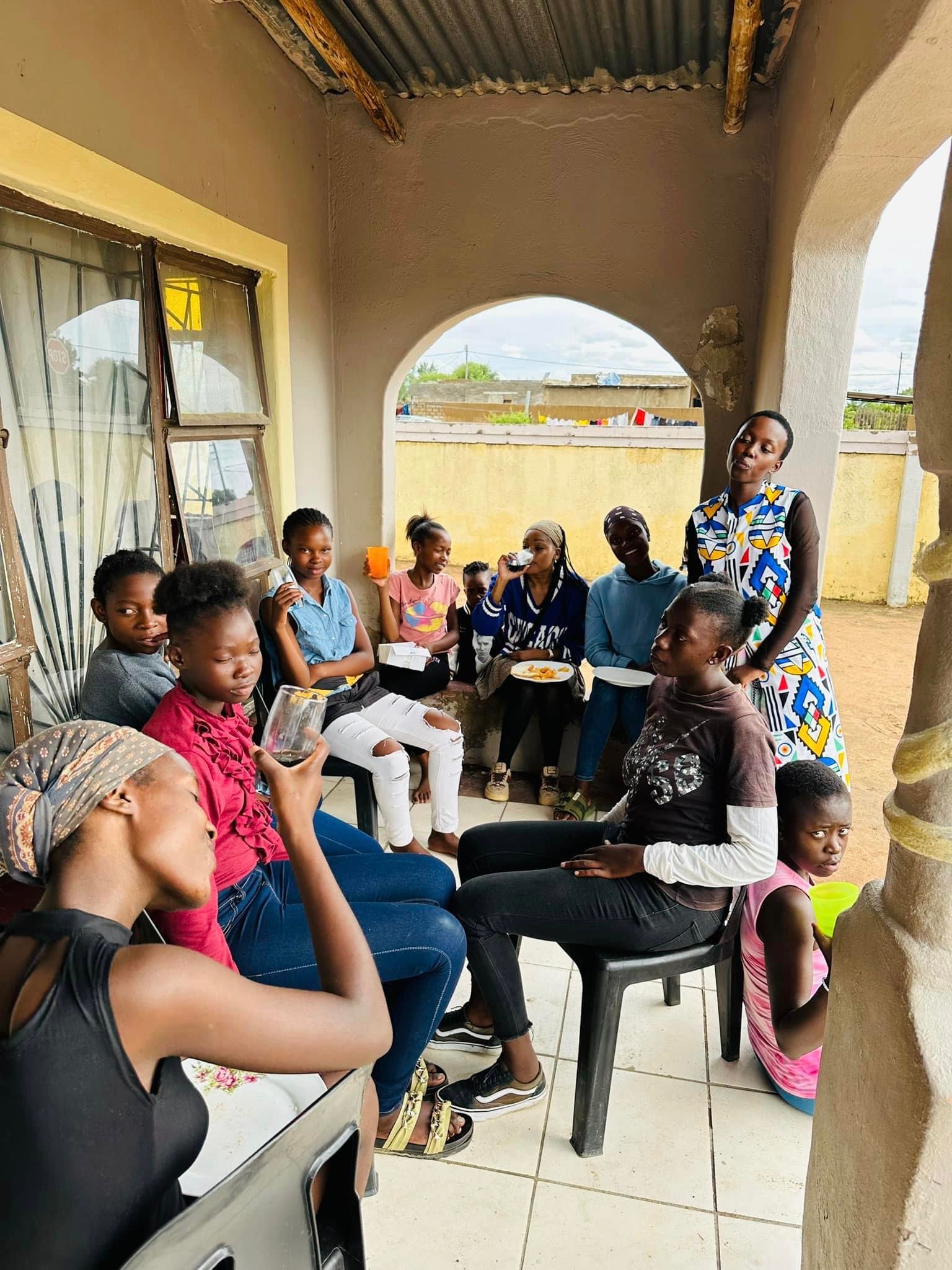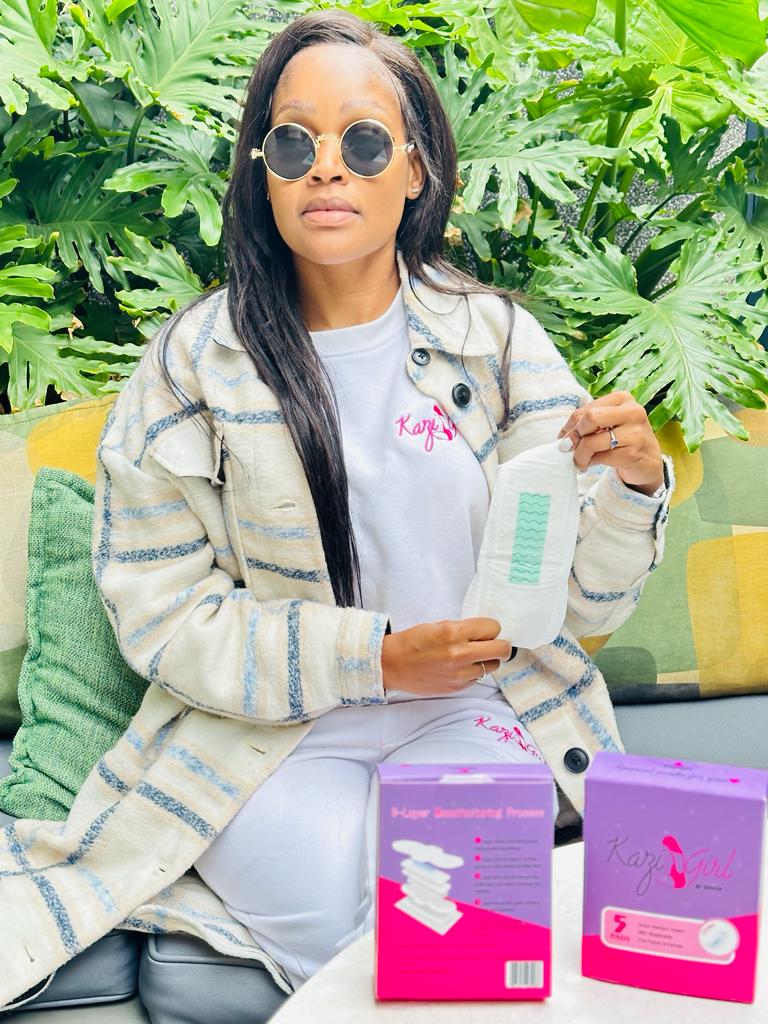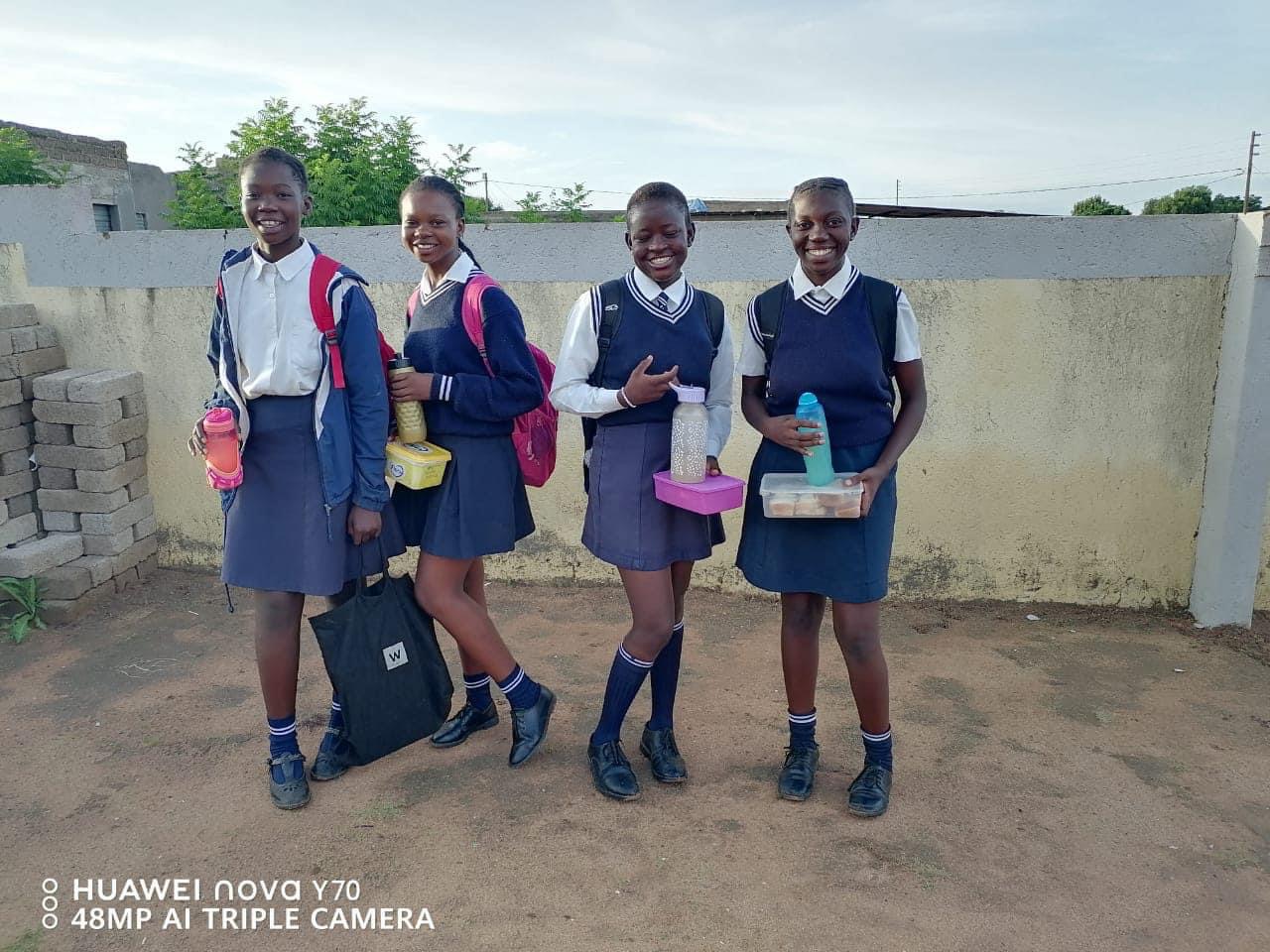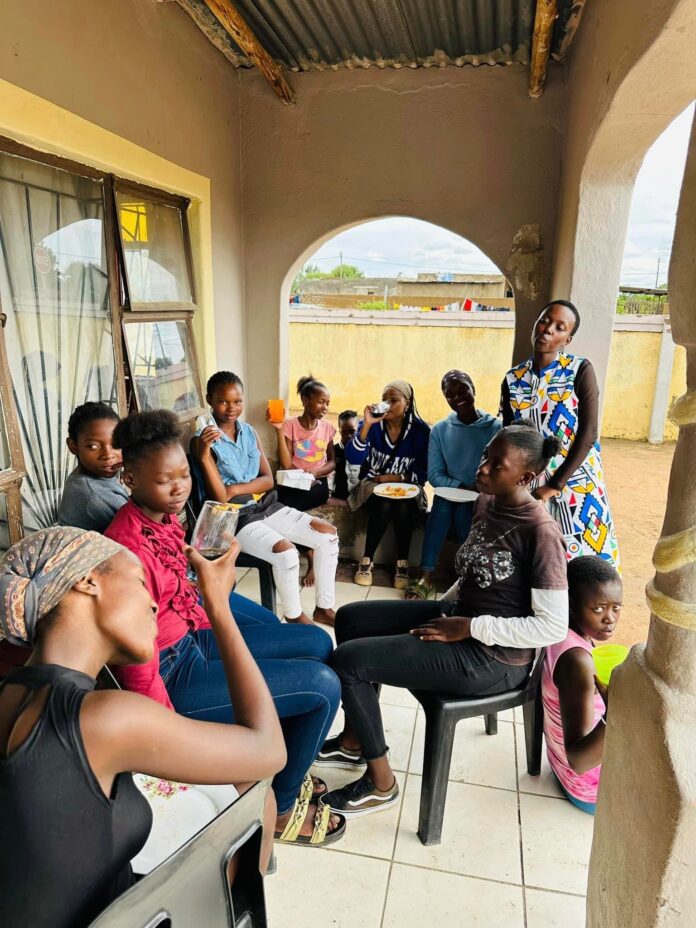By Clifford Akumu
Nairobi, Kenya: Senior Manyama-Madubane is known perhaps as Africa’s most formidable fighter for girls and women’s menstrual dignity and education.
Madubane is determined, daring, and daredevil after breaking the mold making lemonade after life threw lemons at her.
She was not afraid to roll up her sleeves and take on a brow-raising initiative of talking about the sexual reproductive health of girls and women.
The mother of two is proof that with grit, determination, and willingness to do whatever it takes, one can create her own path and thrive.
She is the founder and chief executive officer of the Kazi Girl Foundation, which reaches out to thousands of girls and women and offers them hope.
Madabane became a girl child rights advocate fairly early in life. In 1999, her family moved to Hammanskraal-Stinkwater in South Africa after her parent’s business dissolved in Limpopo province.

“Growing up in Hammanskraal was hard. We lacked modern amenities and facilities, and proper access to education. I knew something had to be done to bring change,” she begins our conversation.
Her father, a taxi driver, and sole breadwinner, could not afford sanitary pads for five girls, she says.
“We had no choice but to use clothes. It affected my confidence a lot. When it reached that time of the month, I had to be this reserved girl and couldn’t play with others due to fear of leakage,” she recalls amid sobs.
She swore to herself to one day bring change to the lives of many girls and women struggling during that period.
Manyama-Madubane wanted to pursue what had become her life’s vocation – empowering African women’s reproductive health and education rights.
But she would have to wait many years. It officially began in 2021, after developing her first sanitary pads.
“I developed my sanitary pads, and shared it with my friend Peggy Mapuruma who believed in my vision and remains to be my support system in the foundation,” says the Retail Business Management graduate from Tshwane University of Technology, South Africa.
“I’m passionate about women’s health rights. It’s transforming the society,” she explains.
Back in 2012, Madubane worked in the food industry, serving as the ShopRite Freshfood Manager. In 2013, she became a client relations manager at ABSA Bank (Bidvest Prestige).
She would later join Oil and Gas starting as a Business Manager before moving to her current position of Territory Manager in 2022.

In 2021, at the height of the COVID-19 pandemic, she formed the Kazi Girl Foundation to restore the menstrual dignity of girls in South Africa, one pad at a time.
Mudubane has fought to transform the sexual and reproductive health issues in Pretoria by bringing women’s issues to the fore.
Today, Kazi Girl Foundation provides young people with sexual and reproductive health services to restore menstrual dignity and reduce teenage pregnancy, and child marriage.
She notes that many girls and women suffer from period poverty due to a lack of access to menstrual products, hygiene facilities, and education about menstruation.
Her foundation supports more than 25 girls with sanitary pads monthly. They also benefit from mental health awareness and support in their education.
“I introduced healthy sanitary pads to restore the dignity of the girl child. It’s slim and comfortable,” she says.
“We also provide them with food or lunch boxes when going to school. They are taught the importance of hygiene and supplied with basic cosmetics including roll-on, and body lotions,” she adds.
Last year, Ms Madubane won an award in the Healthpreneur Category during the Founder Of The Year Awards (FOYA) ceremony held in Nairobi, Kenya for her work on menstrual hygiene.
The award appreciates young founders contributing to the development of the continent while creating sustainable jobs through entrepreneurship.
“I was thrilled for having made it to the list of founders. It was such an honor that people appreciate the work we do as a foundation. I learned a lot from entrepreneurs from other continents and the power of networking,” she says.

The foundation produces affordable sanitary towels for girls from low-income and disadvantaged communities in South Africa.
“The sanitary pads are made of a unique 8-layer manufacturing process which is absorbent and comfortable,” she adds.
Currently, she has 10 staff and a few casuals. In a month, they supply up to 6,200 packs each containing five sanitary pads to over 2,000 schools and girls.
Because most girls and women cannot afford sanitary towels, the foundation partners with other stakeholders including Deemat Investment Group, Lehakoeleletle Events, Business Ideas with Diamond, customers, the community, and individuals, to reach the last mile.
African girls face double tragedy thanks to gender discrimination based on poverty, age, social status, illiteracy of parents, and religious beliefs at the household and community level.
She notes that these vulnerabilities are stronger in rural settings, where poverty, traditions, and lack of infrastructure and services prevail.
Globally, periods cause girls to be absent from school. In South Africa, according to Africa Check, about 2.6 million girls are affected. They lost close to 25 percent of classes and valuable education time annually.
“At Kazi Girl, we strive to put every woman or girl in the center because we cannot overcome poverty until all people have equal rights and opportunities,” she shares.
“Our aim is to ensure every woman and girl everywhere view themselves not as objects but as beautiful beings with a purpose. This way, we will create change,” she adds.
Is she satisfied with the progress made on menstrual hygiene, and sexual and gender-based violence in Africa? It’s a mixed bag, she admits.
Madubane says the legacy of violence and extreme inequality against women in Africa, is compounded by poverty and unemployment.
“As a continent, we should challenge gender norms that perpetuate the idea that girls are inferior to boys. Ensure all girls access quality education,” explains Madubane.
She stresses the need to provide young people with sexual and reproductive health services and education to reduce teenage pregnancy and child marriages.
“Parents will often ‘solve’ the issue of teenage pregnancy by forcing their daughters to marry. This can be avoided through better education for young people about their bodies and rights,” Madubane offers.
But even with these achievements, Kazi Girl faces numerous challenges. “Accessing finance and identifying the right kids for the programme. That is why we hope to raise funds to distribute sanitary pads to all needy girls,” she intimates.
When not empowering girls and women, Madubane dives deeper into books. “I recently finished reading Dr. Spencer Johnson’s “Who Moved My Cheese”, which teaches us that life is not about perspectives, but about putting in work. Life is knowing when to make a move,” she says.
Another of her favourite read is Paulo Coelho’s “The Alchemist”. “I like the way it reveals different layers of wisdom. I like this part, “You never know what is lying on the other side until you make a move,” she says.
The mother of two says that she owes her success to her family and a tribe of women who have become her support system. “Besides my husband, I’m so grateful for the women who have stood by my side and had my back no matter what! It makes such a difference to have a support system that consistently pushes me to succeed and become the best version of myself.”
Her parting shot: “The future looks bright and we are planning to increase the number of girls in our big sanitary manufacturing company in the continent. We also plan to open more offices in South Africa and the continent to create jobs.”















She is powerful
Amazing work
Comments are closed.